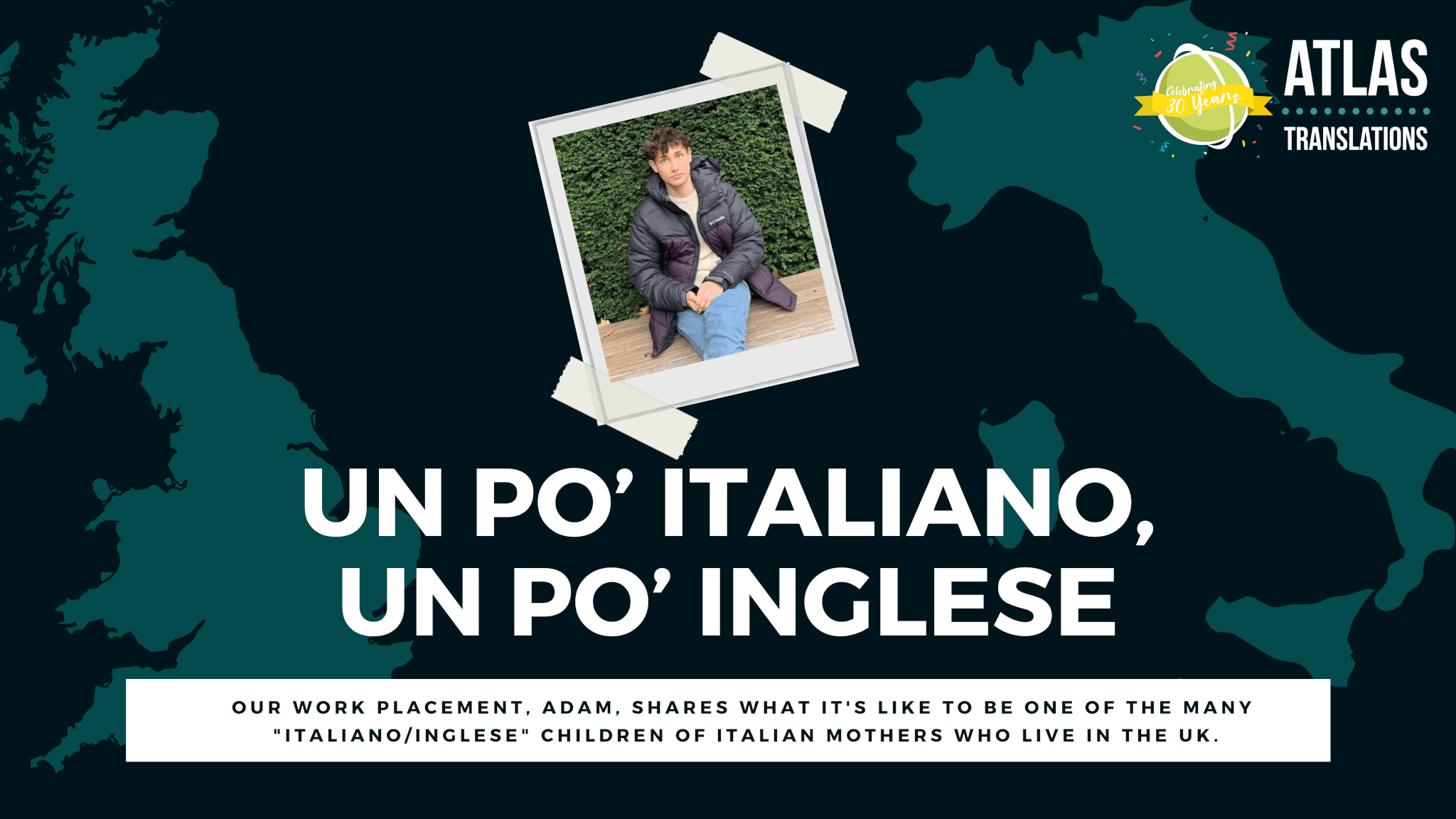Un po’ italiano, un po’ inglese

Growing up between two countries and absorbing two very different cultures, I am one of the many children of Italian mothers, who live in the UK.
For me, being bilingual and belonging to two cultures are a reason for pride, something that makes me feel special and privileged, a concoction of the Mediterranean with Northern Europe. Indeed, Zecchino d’oro,’biscotti pan di stella’ and my mother’s interest (obsession) for Jovanotti’s songs make up as much of my childhood as Peppa Pig, mince pies and incy wincy spider.
La cucina
During my childhood, my contact with Italy didn’t limit itself to a purely linguistic side, but also revolved around the kitchen and the meals my mother would prepare. Indeed, apart from gnocchi, polenta and bonet, possibly my mother’s most common dish, that she would take to every party with her Italian friends, was salame di cioccolato, an irresistible caloric bomb not recommendable for diabetics. Salame di cioccolato, which literally means and is a chocolate salame, tastes of my childhood and reminds me of how my sister and I would ‘help’ my mother, scavenging on the delicious gooey mixture before it was refrigerated.
Ma tu sei piemontese, neh?
Zooming into a linguistic perspective perhaps the most interesting aspect of bilingualism is the assimilation of regional characteristics into speech. Unsurprisingly, having grown up speaking Italian solely with my mother, a Piedmontese woman born in the 70s, and my sister, who had equally only listened to this form of Italian, sometimes I feel that the Italian I speak doesn’t correspond to my generation and carries some heavily provincial nuances.
Inevitably, this can make communication with Italians from other regions slightly more difficult. This is the case of everyday grammatical constructions such as ‘facciamo che andare’ instead of ‘andiamo’ (lets go), ‘non mi oso’ instead of ‘non oso’ (I don’t dare) or ‘avere voglia di’ (do you want to), which in Turin, is used to ask somebody a favour. Other than these, there is also a diversity of contrasting lexical aspects, which come from the Piedmontese language. Besides from unmistakably Piedmontese ‘neh’ (you know?), which recalls a cow bleating and is repeated tirelessly, there are countless others: ‘cerea’ (hello/bye), ‘va bin’ (that’s ok), ‘ciapaciuc’ (dishonest person) and ‘badalüc’ (stupid).
Né inglese, né italiano
Like many expatriates, my mother is part of a friend group formed by other Italian mothers, who have experienced the same phenomenon with their own children. However, various linguistic barriers emerge when the children start to communicate among themselves, given that English words are intertwined with regional words, forming a language which seems much more like a creole than anything else. For example, a banal phrase like ‘on Monday we went to the supermarket to buy chewing-gum’ that in standard Italian should be ‘il lunedi siamo andati al supermercato per comprare gomma da masticare’ becomes ‘il Monday siamo andati al supermarket per comprare cicles’.
L’Italia a portata di click
In the past few years, I began to dedicate myself to Italian with the aim of shaking off the anglicisms common in bilingual children and neutralising my accent. Ironically, the pandemic may have actually helped me in this process, as I started to force myself to watch programmes on Rai and Netflix, listen to Italian singers like Ghali and BabyK and learn more about the customs of other regions, expanding my horizons. With national borders shut, the Internet gave me the opportunity to feel more in contact with Italy than ever.
Although I have accumulated more cultural baggage over time, I am in no way prepared to lose my bilingual identity, with one foot firmly in St Albans and the other in Turin, that has made me and a generation of ‘Britaliani’ who we are.
Looking for work experience?
If you or someone you know is looking for work experience in the language industry, then don’t hesitate to have a chat with one of us! Call us on 01727 812 725 or drop us a message to team@atlas-translations.co.uk . We look forward to hearing from you!














